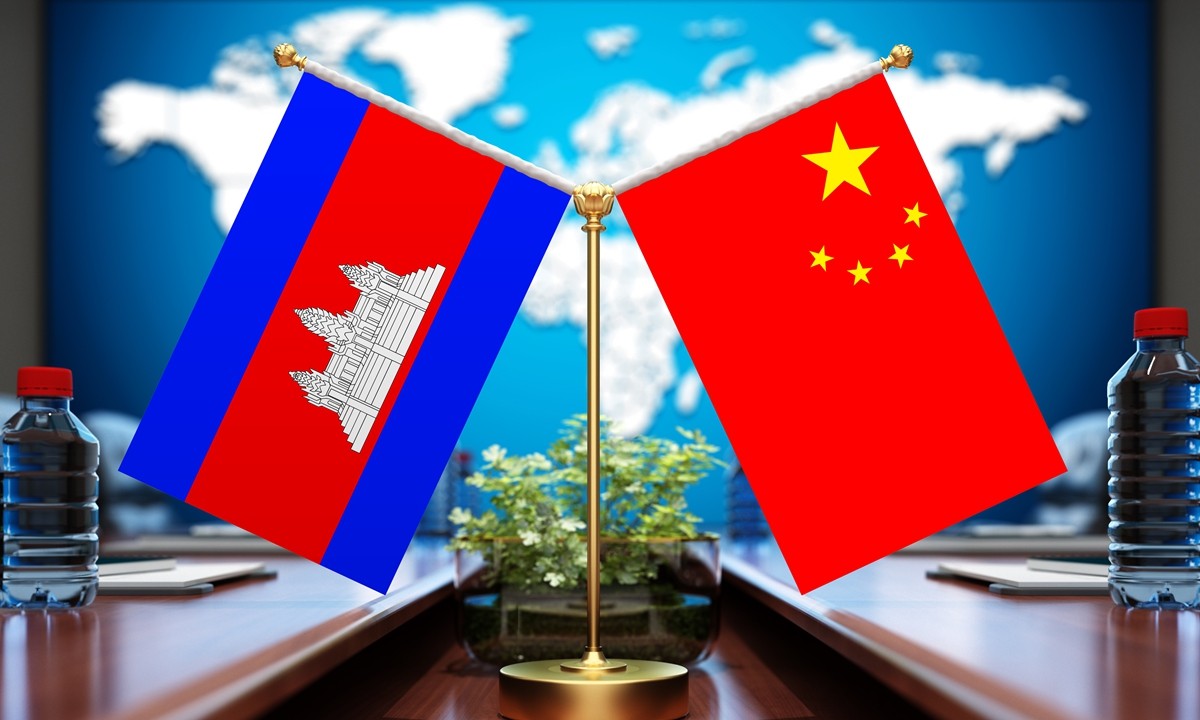China and Cambodia will continue their discussions on a code of conduct for the South China Sea.
China and Cambodia stressed their commitment to fully and effectively implement the Declaration on the Conduct of Parties in the South China Sea, and advance the negotiation on the Code of Conduct in the South China Sea for its early conclusion, during Chinese top diplomat’s visit to Cambodia between Sunday and Tuesday.
Chinese Foreign Minister Wang Yi, also a member of the Political Bureau of the Communist Party of China Central Committee, wrapped up his three-day official visit to Cambodia, during which he met with Cambodian King Norodom Sihamoni, Senate President Samdech Techo Hun Sen, Prime Minister Hun Manet; and co-chaired the seventh meeting of the China-Cambodia Intergovernmental Coordination Committee with Sun Chanthol, Deputy Prime Minister of Cambodia, and held talks with Sok Chenda Sophea, Cambodian Deputy Prime Minister and Minister of Foreign Affairs and International Cooperation.
Both sides agreed that China and Cambodia are ironclad friends that stand by each other and help each other in times of difficulty. Under the strategic guidance of both leaders, the two sides have deepened and substantiated their efforts to build the China-Cambodia community with a shared future.
Both sides have also enriched the “Diamond Hexagon” cooperation framework, and made positive progress in building the “Industrial and Technological Corridor” as well as the “Fish and Rice Corridor,” bringing tangible benefits to the two nations.
The Chinese side reiterated support for Cambodia’s choice of a development path that suits the Cambodian national conditions and its efforts to safeguard national sovereignty, security and development interests. China also reiterated firm opposition to external interference in Cambodia’s internal affairs.
The Cambodian side reaffirmed its commitment to the one-China principle and its recognition that the Government of the People’s Republic of China is the sole legal government representing the whole of China and that the island of Taiwan is an inalienable part of China.
Cambodia opposes any attempt to use the Taiwan question to interfere in China’s internal affairs, opposes any form of “Taiwan independence,” firmly supports all China’s efforts to achieve national reunification, and will not develop any form of official relations with Taiwan.
The two sides agreed to strengthen defense cooperation, continue to hold joint exercises and training, advance collaboration in such fields as medical services and logistics, personnel training and mine clearance, and jointly fight cross-border crimes such as online gambling, telecom fraud and drug trafficking.
Both sides agreed to deepen synergy between the Belt and Road Initiative; advance the preliminary planning and design of the China-Cambodia Railway; and deliver on the Chinese Agricultural Demonstration Center and other early harvest projects of the “Fish and Rice Corridor.”
The two sides will ensure high-quality implementation of the China-Cambodia Free Trade Agreement, promote imports of Cambodian agricultural products to China, and encourage more Chinese businesses to invest in Cambodia.
Both sides agreed to take the opportunity of the China-Cambodia People-to-People Exchange Year to encourage greater tourism exchange between the two countries, increase two-way flights, support Cambodia in tapping its tourism and cultural resources, and carry out more substantive exchanges between youths, localities and friendship groups.
Cambodia will support the China Cultural Center in resuming its operation in Cambodia.
Also, both sides reiterated their readiness to cooperate under the framework of the Global Development Initiative, the Global Security Initiative and the Global Civilization Initiative, and further enhance coordination and collaboration within such platforms as Lancang-Mekong Cooperation and China-ASEAN cooperation.
Both sides agreed that it serves the common interests of regional countries to safeguard the hard-won peace and stability, and promote development and prosperity in the region.
Both sides stressed their commitment to fully and effectively implement the Declaration on the Conduct of Parties in the South China Sea, and advance the negotiation on the Code of Conduct in the South China Sea for its early conclusion.













